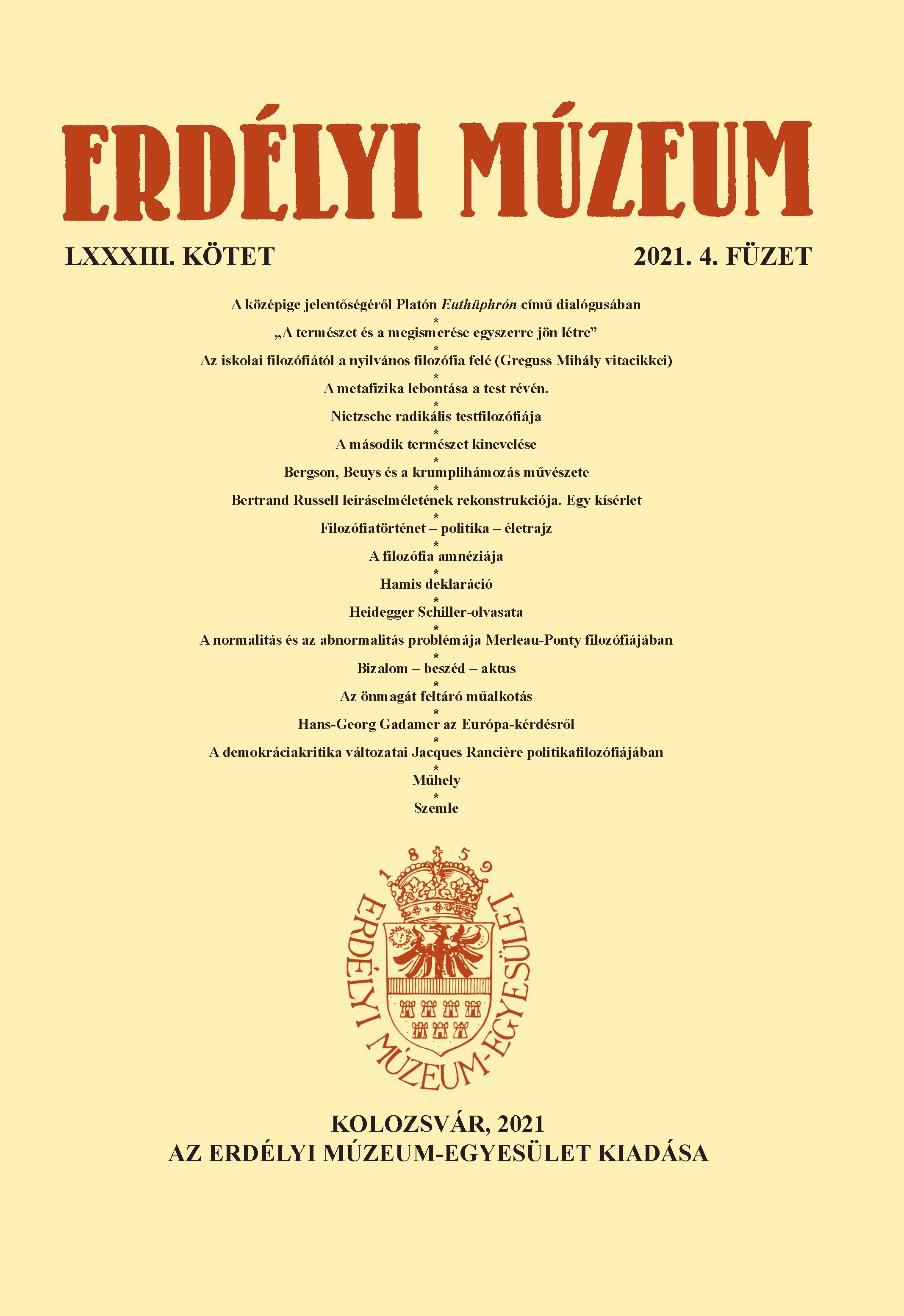A demokráciakritika változatai Jacques Rancière politikafilozófiájában
Variants of the Critique of Democracy in Jacques Rancière’s Political Philosophy
Author(s): Lajos András KissSubject(s): Political Philosophy
Published by: Erdélyi Múzeum-Egyesület
Keywords: demos; disagreement; equality; distribution of the sensible; police; politics; consensus; dissensus; archipolitics; parapolitics; metapolitics; post-politics;
Summary/Abstract: Jacques Rancière is one of the most significant political philosophers of our epoch whose original ideas and system of concepts used by him generated great debates in the humanities in the last decades. However, the French philosopher has numerous enthusiastic followers, possibly more of those who are irritated by his quiet unusual interpretations of politics and democracy. By Rancière’s glance, politics does not mean primarily the fight for the institutionalised rule, but a continuous struggle for the right of expression and visibility. According to him, the real core of the political struggle is not the consensus but the visualization of the dissensus in a “sensible form”. In a true democracy, debates always focus on the questions of distribution and redistribution of the “sensible links” (localities, competences and functions). Police (in its special Rancièreian meaning as ‘rule of the police’) is usually interested in the status quo; politics (la politique) intends to break with the established order. Consequently, politics is an always restarted experiment to compare the incomparable.
Journal: Erdélyi Múzeum
- Issue Year: LXXXIII/2021
- Issue No: 4
- Page Range: 168-180
- Page Count: 13
- Language: Hungarian

